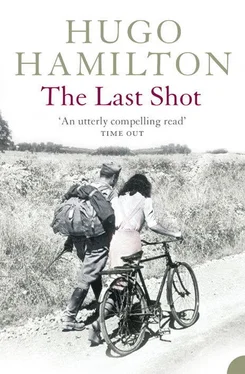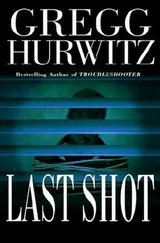‘I know,’ was all he said.
That was enough for Bertha. What it was he knew wasn’t clear. But he must have known that she had not betrayed him. She went back to her work.
During the day, the activity in the office intensified apace with the war outside. There was talk of capitulation. But General Schörner wanted more valour and sent out personal messages to his men over the radio: ‘Soldiers. You must break every resistance from the Czechs with the heaviest weapons.’
Very soon after that, Officer Kern came back into the office with another message, this time broadcast by the free Czech radio. It had been put out repeatedly in three different languages: ‘Prague calling. Here is free Prague. Red Army – send help. We need tanks and planes. Don’t let us go down in a useless struggle. Help, quick, quick, quick.’
It is significant that Prague began to call on the Russians, instead of the Americans, who had been closer to Prague for days. At one point, a report broadcast by the BBC in London said that the American Army at Pilsen had begun to move on Prague. But the report was misleading. Nothing could lure the Americans to get involved in what had already become a Soviet state.
For the Germans, it meant that all hope of surrendering to the Americans had faded. Second best, they would have to surrender to the Russians.
That evening, straight after dinner, Bertha Sommer went to her room to rest. There was nothing she could do at the office any more. She took her washbag and towel and went to the washrooms on her landing to wash her hair, and after that her feet. She had just got back to her room when she heard footsteps in the corridor outside her door. She could hear a knock on the room next door which she knew to be unoccupied. She stopped combing her hair and listened. When there was no answer, the footsteps came and approached her own door. She waited for the knock and then went to answer it, opening up a little so that only her face could be seen around the door. It was Officer Kern.
‘Ah, Fräulein Sommer. I didn’t know which room was yours. I’ve got to speak to you for a moment.’
She didn’t know whether this was an order or a request. This was not a good idea, his coming to her room, she thought. She looked past him to see if there was anyone else in the corridor. But the building had been largely empty since the civilian population moved out. Her hair was wet and she stood there feeling awkward in her dressing-gown and slippers, waiting for him to speak. She was glad at last to be able to explain to him what happened the night before, but felt it wouldn’t be right to invite him inside.
‘I’m afraid we might be overheard in the corridor,’ he said. ‘I won’t stay long, Fräulein Sommer, I promise.’ He understood her reluctance.
‘Wait. Let me get dressed.’
He stood outside and heard her moving around inside the room. As soon as he heard the sound of clothes, he began to pace up and down to give her complete privacy. Bertha checked herself in the mirror and considered the implications of letting a man into her room. The war is a time for exceptions. She looked around to make sure that the room was tidy and reminded herself not to speak too soon. Let him speak first, she said to herself.
‘Forgive me, Fräulein Sommer,’ Kern said as he entered the room. ‘But I felt I had to speak to you. What happened last night doesn’t matter.’
‘I tried to go,’ she broke in, already disregarding her own first rule.
‘I know,’ he replied. ‘I saw you. I saw you turn back. You were right. There was no other way. I was worried that somebody else might have seen you too. Now I’m sure nobody did.’
‘I saw the Red Cross vehicle leave.’
‘Yes,’ Officer Kern said. ‘It doesn’t matter. What happens now is more important. It is too dangerous to make any new plans to escape. We should wait for a ceasefire and hope for the best. I know the Red Army is approaching from the north. They’re not far away. But our best bet is to stay. The hostages here give us some protection.’
Bertha was taken aback by the way Officer Kern included her so presumptuously in his plans. At the same time it reassured her. There was something she wanted to ask him, but she had forgotten what. She let him speak.
‘There is great hostility against the Germans. I’ve heard reports from London about…terrible things. About the Jews in the camps. I thought it was all propaganda at first. But now, I’m beginning to believe it. No imagination could invent what they’re saying about us.’
Officer Kern checked himself. It was not something he wanted to talk about. He had listened to the radio too much.
‘I’m sorry. Fräulein Sommer, the last thing I want is to alarm you, but when this war is over, even when the ceasefire is called, I know the Russians won’t stop. They will overrun all of Czechoslovakia and take as many of the German troops as possible. Hauptmann Selders is playing a clever game with the hostages. Maybe that will save us. But after that, it’s every man for himself.’
Officer Kern spoke as though he had seen everything happen before.
‘Fräulein Sommer, I want you to know that the bicycle is at your disposal.’
Bertha laughed. Maybe it was a nervous laugh. She felt she had done him an injustice, and tried to be serious. But the idea of fleeing from the Russians on a bicycle seemed too funny. Officer Kern smiled.
‘I’m sorry,’ Bertha said. ‘I’m only laughing at the idea of trying to escape on a bicycle.’
‘Believe me, Fräulein Sommer, when this war is over, the roads from here to Kempen will be so stuffed with people, nothing will move faster than a tortoise. In fact, it is my guess that the bicycle will be the fastest mode of transport. Believe me, when they call a ceasefire, every cart with wheels left on it will be out there going home.’
Bertha felt the intimacy by which he spoke the name of her home town, Kempen. She thanked him. It was as though he had undertaken to deliver her home to her family. Officer Kern said he would make all the arrangements to get the bicycles put on trucks for the first part of the journey to Eger. The Americans were at Eger, he said. She thanked him again, placing all her faith in him. She wanted to tell him that with her prayers and his intuition, they would both get home safely. But then she remembered once more that he was standing in her room.
It was awkward. A man in her bedroom. Then she remembered what it was she wanted to ask.
‘Why did you stay?’
He looked puzzled. Perhaps he hadn’t thought of an answer yet.
‘Why didn’t you leave when you had the chance?’
‘I couldn’t,’ he said. ‘To be honest, I had second thoughts.’
Officer Kern hesitated. The subject made him uneasy. He chose his words carefully.
‘When you didn’t arrive, when I could see that you weren’t coming, I thought about it again. I felt I would not only be letting you down, but everyone else in the garrison as well. I thought about it all last night. I felt I would have betrayed everyone, not the Fatherland or Germany or anything like that; not the Reich, that doesn’t matter to me or to anyone now. No, I thought it would have been cowardly to leave. I felt it was not the right time to betray, just hours before the end.’
He stopped. He could have gone on spilling forth his reasons. He looked at her and decided to be lighthearted instead.
‘…And as well as that, the weather wasn’t very good.’
Bertha laughed.
‘Now, if you forgive me, I must go back to work,’ Kern said, looking around the room. He saw her bag on the table and said, ‘I see you’re packed. Very good.’
Bertha nodded. It was a private matter whether or not she was packed, but she said nothing.
Читать дальше
Конец ознакомительного отрывка
Купить книгу












